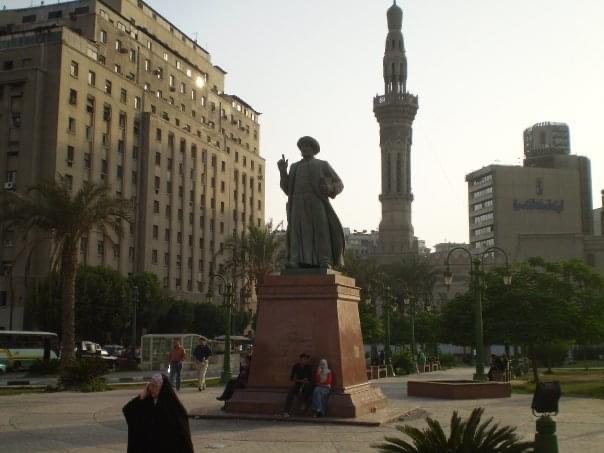
we’ve had a number of very interesting guest lecturers. a while ago we had a guest speaker on human rights in egypt. she is a copt and is a faculty member at a local university. there are many human rights problems in egypt that are caused by the government. egypt’s government is effectively totalitarian and it has a huge internal security force to keep the regime in power. the united states supports the regime with huge quantities of aid, because we claim we need an ally in the region and also ostensibly as a reward for maintaining peace with israel. therefore, we are being hypocritical in that we are pushing for democracy elsewhere but are ignoring the fact that egypt is a corrupt dictatorship – because we “need” their support.
the president controls basically everything in egypt, from whether you can change your official religion to what the courts can say to who the next president will be. the president, hosni mubarak, wants his son to take over from him, because he is 80 and could die at any time. they claim that there will be an election, but basically this is to appease the west and the president has framed the rules for candidates in that election in such a way that all the viable contenders except his son will be eliminated by default. the christian coptic minority is being persecuted more and more. christians are easily identified because of their names, and the courts have become biased against them. they are being pushed out of academia, people are beaten for converting, etc.
a political group called the muslim brotherhood has existed in egypt for many years but has recently become very popular. they are banned by the government but many recently ran as independent candidates in a very limited token election and won huge percentages of the vote. they started as a very extremist islamist group, and though many people see them as moderating now many also still consider them to be extreme – the copts, for example, in general fear for their lives if the brotherhood ever came to power. the muslim brotherhood has branches in basically every muslim country – hamas in the gaza strip is an offshoot. to be fair, this is another reason the u.s. is propping up the regime – because if elections were held today or the government fell the muslim brotherhood would dominate and things would likely get really bad for the copts and others in egypt. we also had a guest speaker from the u.s. embassy who is quite important, and as such had to be much less forthcoming than the speaker concerned with human rights.
we also had a couple christian speakers on “faith-boundary issues.” they basically talked about different ways people interpret who is going to heaven. one of them named paul gordon chandler talked about whether it is possible to follow Christ while continuing to be a muslim. he is very relativist theologically which has led some leaders of the evangelical world to denounce him as a heretic but others have endorsed him. he wrote a book about a very prominent muslim author, one of the most popular arabic authors in the middle east, who became a believer in Christ, but, instead of “converting,” decided to remain in the muslim tradition.
muslims here who “convert” are often ostracized from their families (which are extremely important to one’s identity in this part of the world), giving up any opportunity to get married, and often have no means of networking/fellowshipping with any other believers who aren’t foreigners. chandler challenged us – is this what Christ would have wanted? this muslim christian has huge clout in the arab world and has published the gospels in arabic in a culturally relevant style of speech and they are available places where christian or even western books would be burned. in his opinion, being a muslim and a follower of Christ can be entirely compatible if one navigates the religious waters carefully.
even if one doesn’t buy the theory, he said some things which can challenge us all. as christians, we should be trying to build bridges and focusing on commonalities between ourselves and muslims whenever possible. also, when someone asked this muslim author what about islam he had to give up to be a follower of Christ he responded: “what about christianity do you have to give up to be a follower of Christ?” i think that is a major theme of this semester for me – considering what really is important regarding our faith and what is just cultural baggage that really doesn’t have anything to do with what Christ taught.
